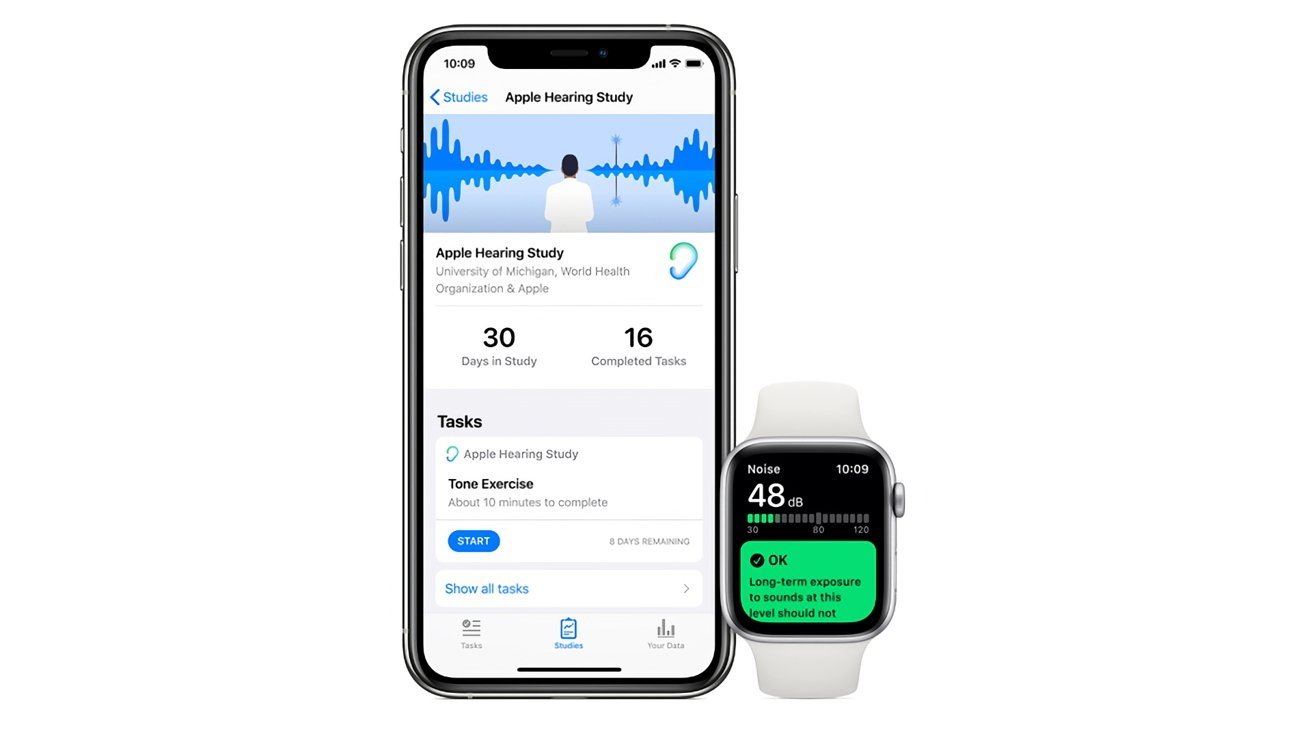The Apple's Hearing Study's latest release details how people suffer from tinnitus, and that most people encounter the ringing in the ears at some point.
The Apple Hearing Study has regularly released findings from its research, conducted with the University of Michigan. On Tuesday, the researchers released data on tinnitus.
Reviewing surveys and assessments from more than 160,000 participants, the team determined that 15% of people experience tinnitus daily.
"Tinnitus is something that can have a large impact on a person's life," said Rick Neitzel, University of Michigan School of Public Health's professor of environmental health sciences. "The trends that we're learning through the Apple Hearing Study about people's experience with tinnitus can help us better understand the groups most at risk, which can in turn help guide efforts to reduce the impacts associated with it."
It was determined that 77.6% of participants have experienced tinnitus at some point.
For daily tinnitus, it was found that older people were more likely to suffer from it. People over 55 were three times more likely to hear it daily compared to 18 to 34 year olds.
It was also more prevalent in men, with 2.7% more male participants experiencing it daily. However, 4.8% more men said they never had it at all.
To manage their tinnitus, 28% said they used noise machines, 23.7% listened to nature sounds, and 12.2% practiced meditation. Less than 2.1% used cognitive and behavioral therapy.
For what causes it, "noise trauma" was behind it for 20.3% of respondents, with 7.7% hearing it due to stress.
Most people only had brief episodes, versus 14.7 percent who dealt with it constantly. Again, older men were most likely to experience it more.
The Apple Hearing Study has already collected about 400 million hours of calculated environment sound levels and lifestyle surveys handled via the iPhone Research app.
Data from the study will be shared with the World Health Organization, to its Make Listening Safe initiative.
 Malcolm Owen
Malcolm Owen







-m.jpg)






 Brian Patterson
Brian Patterson
 Charles Martin
Charles Martin



 William Gallagher
William Gallagher
 Christine McKee
Christine McKee
 Marko Zivkovic
Marko Zivkovic









7 Comments
I've had 24/7 tinnitus since I was a kid. I thought it was normal until I was in my 20s. To me, it is normal, so I ignore it most of the time.
The sound of running water helps.
I suffered from tinnitus 24/7 for all my adult years. At times it was unbearable.
A few years ago, I did a sleep study as I had severe sleep apnea. They prescribed me a CPAP machine and not only did my snoring go away, but so did my tinnitus. My lack of sleep all these years and the problems associated with it seemed to be my cause.
developed it myself in late 40s, despite not being a major music or concertgoer. Did attend some in my youth sans ear protection, perhaps that was enough to lead to it developing later in life.